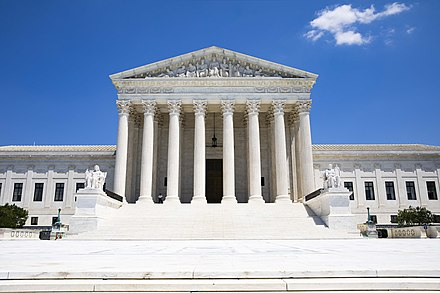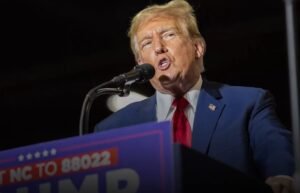
Supreme Court Rules:

In a decision that resonated nationwide, the Supreme Court rules a verdict on Monday regarding former President Donald Trump‘s eligibility for the ballot in Colorado, settling a months-long debate surrounding the “insurrectionist clause” of the 14th Amendment. The ruling, seen as a significant triumph for Trump, dismantled a crucial legal hurdle in his bid for the GOP nomination. However, it bears no impact on the multiple criminal cases he faces, notably the federal election subversion case stemming from the events of January 6, 2021.
The court’s unanimous stance rejected the notion of unilaterally removing Trump from the ballot, yet revealed a division regarding the breadth of the decision. While a 5-4 majority asserted that no state could exclude a federal candidate from any ballot without Congress first enacting legislation, a dissenting faction contended that the court’s opinion should have been more circumscribed.
The majority opinion, articulated by Chief Justice John Roberts and four other justices, emphasized that states lacked constitutional authority to enforce the “insurrectionist clause” against federal officeholders without legislative action. Conversely, dissenting justices raised concerns about the decision’s implications, arguing that it unduly curtailed other potential avenues for federal enforcement.
Crucially, the court refrained from directly addressing whether Trump’s actions on January 6 constituted an “insurrection,” bypassing a contentious issue that had been central to lower court deliberations in Colorado.

Simultaneously, the Biden administration escalated its legal confrontation with Texas over the implementation of SB4, an expansive immigration law granting state law enforcement broad powers to arrest and prosecute migrants suspected of unauthorized entry. The administration, petitioning the Supreme Court to block SB4 enforcement, condemned the law as an encroachment on federal immigration authority and a potential source of diplomatic tension with Mexico.
This legal battle adds to the ongoing discord between Texas and the Biden administration over immigration policy, exemplified by recent clashes over border security measures and the relocation of migrants to Democratic-led cities.
As these high-stakes legal dramas unfold, they underscore the enduring significance of judicial interpretation in shaping the contours of American democracy and governance.





